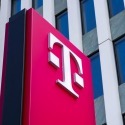DT to Lay Out Conditions for All-Fiber Splurge
German operator will present the investment criteria for a much bigger rollout of all-fiber networks later this month.

Deutsche Telekom is due to present details of the investment conditions under which it would commit to a more widespread rollout of all-fiber networks in Germany.
The German telecom incumbent has arrived at a concrete number for the weighted average cost of capital (WACC) it would deem acceptable for an all-fiber investment, and will unveil that figure at a capital markets day in Bonn on May 24.
WACC is an investment measure that calculates the overall cost to a company of all of its sources of funding.
"We will only go into fiber build-out investments with a certain threshold, with a certain weighted average cost of capital, so that everybody understands under which conditions we're going to invest," said Timotheus Höttges, Deutsche Telekom's CEO, during a recent call with analysts. "This number and the details around it will be presented at the capital markets day."
Deutsche Telekom AG (NYSE: DT) has been upgrading broadband networks in Germany to cope with higher-speed services, but has resisted making substantial investments to extend fiber all the way to customer premises.
It has previously estimated that bringing all-fiber networks to the whole of Germany would cost between €60 billion ($72 billion) and €80 billion ($96 billion). With customers unlikely to spend much more on all-fiber than on today's broadband services, an investment of that magnitude would be impossible for a company that last year made €3.5 billion ($4.2 billion) in net profit on revenues of €75 billion ($90 billion), and spent €12 billion ($14.4 billion) in capital expenditure (minus spectrum payments).
When it comes to making a bigger all-fiber investment, the operator's other concern is that regulatory authorities would force it to provide wholesale services to its rivals at prices it would consider too low.
Its all-fiber aversion meant the technology served fewer than 100,000 of Deutsche Telekom's customers in early 2017, according to a report from market research firm Market Mettle, citing data from Verband der Anbieter von Telekommunikations- und Mehrwertdiensten (VATM), a German telecom association.
VATM estimates that all-fiber technology accounted for only 800,000 connections in March 2017, according to the Market Mettle report.
Germany has about 41 million households, according to government data, while Deutsche Telekom had around 13.4 retail broadband customers at the end of March.
The operator is using a technology called supervectoring to boost connection speeds on last-mile copper loops to a maximum of 250 Mbit/s. It insists these download speeds will be sufficient for the majority of households in the foreseeable future.
But Deutsche Telekom has been under mounting competitive and political pressure to build all-fiber networks. German cable operators touting higher-speed broadband technologies have continued to erode its market share. A planned merger between Vodafone Group plc (NYSE: VOD) and Liberty Global Inc. (Nasdaq: LBTY)'s Unitymedia subsidiary, which Höttges has vigorously opposed, would bring together Germany's two largest cable networks and provide an even greater competitive challenge to Deutsche Telekom. (See DT CEO to Fight Vodafone-Liberty Deal and Vodafone Pounces on Liberty Cable Assets in €18.4B Deal.)
On the political front, meanwhile, there is concern that Germany could slip behind other countries now rolling out all-fiber networks, which in Europe include both France and Spain. If such infrastructure provides a spur to economic growth, by helping to support new online services for both residential and business customers, then Germany could lose out. (See Germany's Gigabit Lag.)
The introduction of 5G, a mobile technology that promises even faster connections than today's 4G networks, may also necessitate greater investment in fiber. In areas where 5G becomes available, ultra-fast connectivity will be needed for "backhaul" links between basestations and core networks. (See DT to Ramp Up FTTH Capex Starting in 2019.)
For more fixed broadband market coverage and insights, check out our dedicated broadband content channel here on Light Reading.
Yet despite drawing up all-fiber investment conditions, Höttges has shown little sign of any willingness to compromise with regulatory authorities on fiber rollout.
"As long as there is no kind of retail price controllability for an operator, and therefore no possibility to guarantee amortization over a longer period, there will be no significant fiber-to-the-home buildout," he said during his recent call with analysts. "If there is no fiber-to-the-home deployment, why do we need regulation at all? If there is no market, how can someone be dominant in this area?"
Some analysts believe that Vodafone's takeover of Unitymedia could make way for less heavy-handed regulation by creating a large infrastructure rival to Deutsche Telekom. Vodafone estimates that it will be able to provide high-speed connectivity for about 24 million premises following a takeover. It puts Deutsche Telekom's high-speed coverage at about 30 million premises.
Höttges accused Vodafone of being "opportunistic" in its criticisms of Deutsche Telekom: The UK-based operator had previously accused Deutsche Telekom of not having decent next-generation access (NGA) infrastructure but now claims the incumbent has a dominant NGA position, he said.
Earlier this year, Deutsche Telekom said it would increase overall investments in Germany to about €5.7 billion ($6.8 billion) this year, from around �€5.4 billion ($6.5 billion) in 2017, as it prepares to launch 5G services in 2020. (See DT to Splurge €12.5B in 2018 Capex as It Preps for 5G.)
Höttges said the operator would be able to provide connection speeds of 100 Mbit/s or more to at least 80% of households by mid-2019. "If we had just built fiber-to-the-home networks in cities, we would have had a coverage of 20%," he said. "So we were totally right in the eyes of customers and investors to pursue things as we did."
He told analysts that Deutsche Telekom is currently in talks with regulatory authorities and politicians about an all-fiber rollout and that he was "encouraged" by discussions so far.
— Iain Morris, International Editor, Light Reading
Read more about:
EuropeAbout the Author(s)
You May Also Like




_International_Software_Products.jpeg?width=300&auto=webp&quality=80&disable=upscale)







